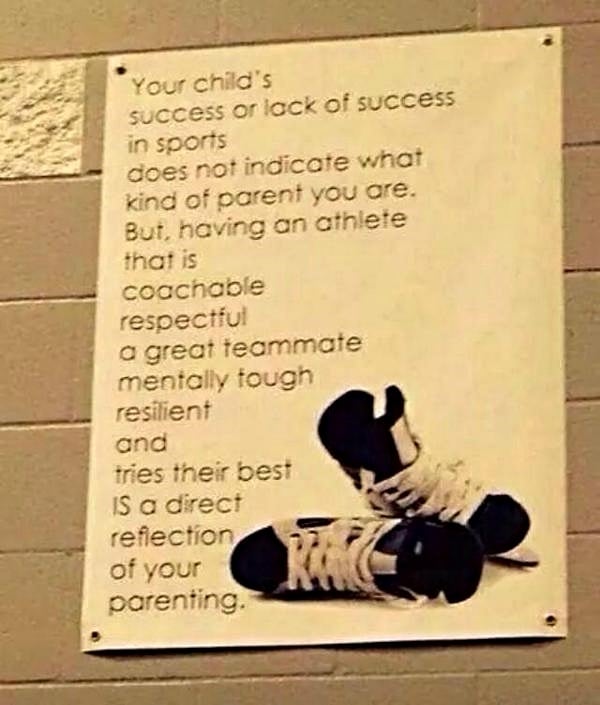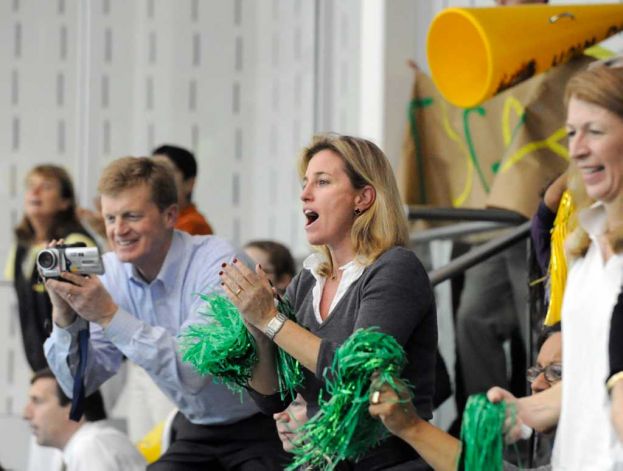 There’s always a parent, on any team, in any sport, who considers every game the Superbowl, the Stanley Cup final, or the World Cup title match. You know exactly who we’re talking about. We even bet one or more parents immediately popped into your head.
There’s always a parent, on any team, in any sport, who considers every game the Superbowl, the Stanley Cup final, or the World Cup title match. You know exactly who we’re talking about. We even bet one or more parents immediately popped into your head.
You know the ones. You can hear them screaming from the sidelines, you can hear them second-guessing everything the team is doing during halftime, and you can hear them trying to out-coach the actual coach.
Being on a team teaches kids teamwork, sacrifice, and other valuable lessons — which can all be negated if adults are too focused on the scoreboard. Or, in some cases, too focused on their child’s path to Rio – forgetting the fact that they haven’t even hit adolescence yet!
The intense desire to win can be seen on the sidelines of games even among the youngest participants. Parents pace the sidelines, jerking at every shot, block or rebound of the ball or puck, shouting exhortations at their children, the coach and the team. In many cases it becomes clear that it is the parents who want to win more than the kids on the field (or ice, or court, or track).
Parents feel pressure to have their children succeed and to keep up with other players and parents in this increasingly intense winner-take-all culture.
 Raising active kids is extremely challenging, perhaps even more so in today’s world. As complicated as the relationship is between a player and a coach, the relationship between a parent and a coach is often just as complex, if not more so. With success often times depending on effective communication and the setting of appropriate boundaries, parents need to respect the coach’s decisions and let them do their job.
Raising active kids is extremely challenging, perhaps even more so in today’s world. As complicated as the relationship is between a player and a coach, the relationship between a parent and a coach is often just as complex, if not more so. With success often times depending on effective communication and the setting of appropriate boundaries, parents need to respect the coach’s decisions and let them do their job.
Nearly 75 percent of kids who play organized sports quit by age thirteen. Thirteen! Too many promising young athletes turn away from sports because their parents become insufferable and they don’t want to deal with the inevitable awkward tensions from their coach.
Parents continuously showing displeasure during a game are sending the wrong message. Encouragement is crucial — especially when things aren’t going well on the field. The players and coaches need your support, not just criticism.
Young athletes need a single instructional voice during games.
That voice has to be the coach. Athletes who listen to their parents yelling instruction from the stands or even glancing at their parents for approval from the field are distracted and can’t perform at their highest potential.  Second-guessing everything from the coach on the ride home is just as unhelpful and leaves your kids with the wrong message to have lingering in their head.
Second-guessing everything from the coach on the ride home is just as unhelpful and leaves your kids with the wrong message to have lingering in their head.
When a parent shows control, poise and positivity, the young athlete is likely to do the same. And when a parent doesn’t dwell on a tough loss or lack of playing time, the young athlete will be learn from those actions and be able to improve for the next game.
Coach Patrick Murphy of Alabama Softball says it best; “Uncoachable kids become unemployable adults.”
The lessons parents teach their kids now about teamwork, leadership, working hard and never giving up, are the same lessons those kids will revert back to when they are lining up for an interview after college.
What young athletes need in order to advance in any activity is , enjoyment, and confidence from both their parents and their coach. Then, it’s up to them! Let them learn, let them make mistakes, and let them grow. Sports should never stop being fun. Even at the highest level. That’s why we play. While talent definitely plays a role early on, eventually it’s the hardest workers that rise to the top. In sports and in life.